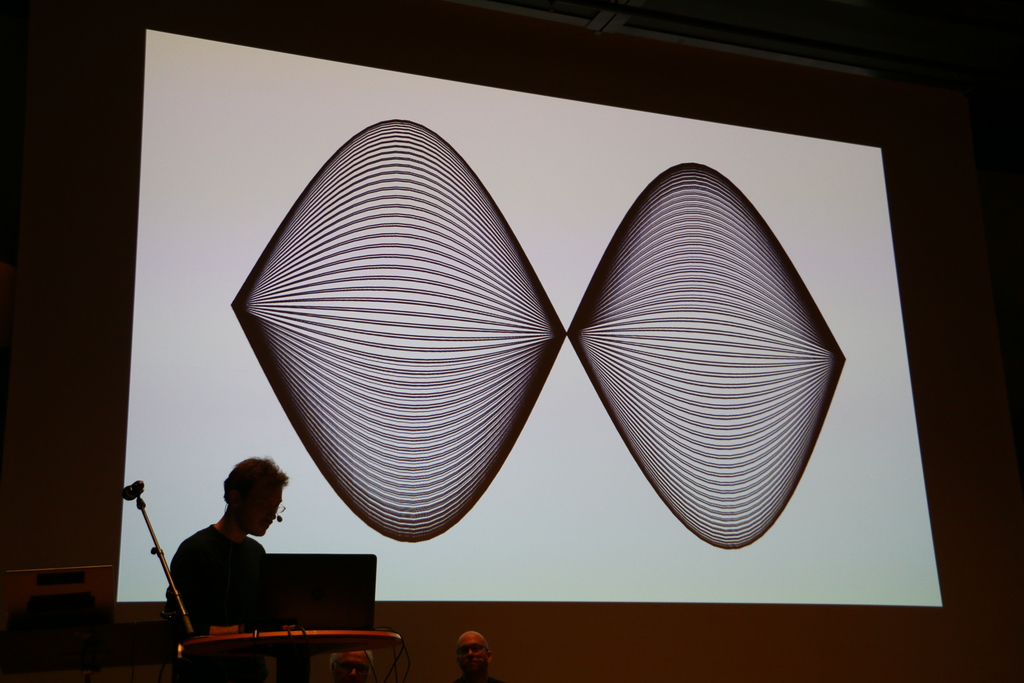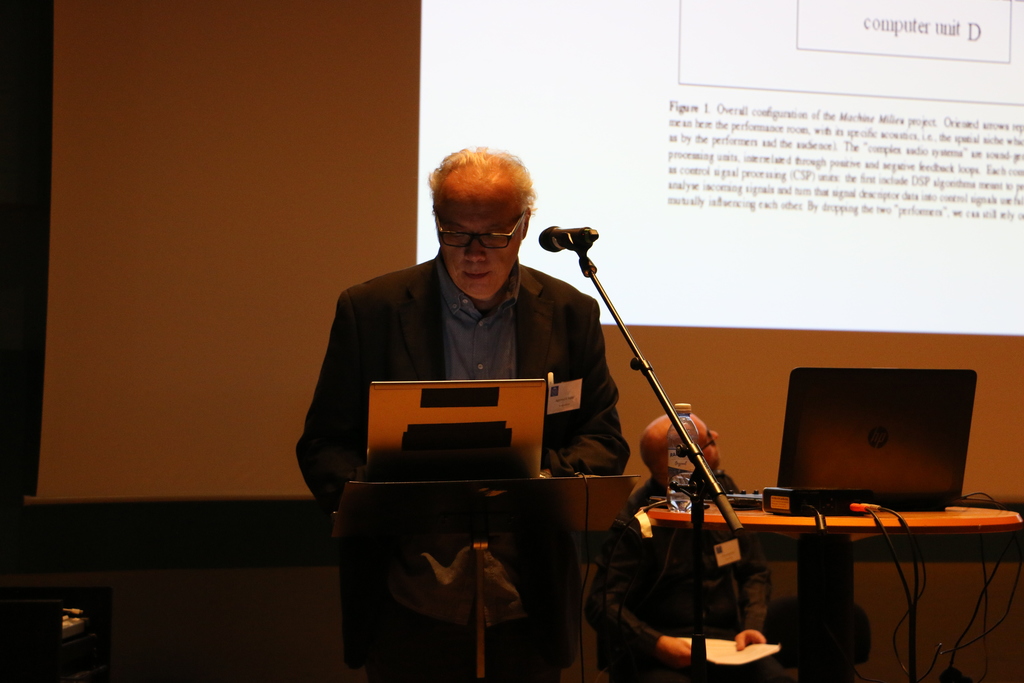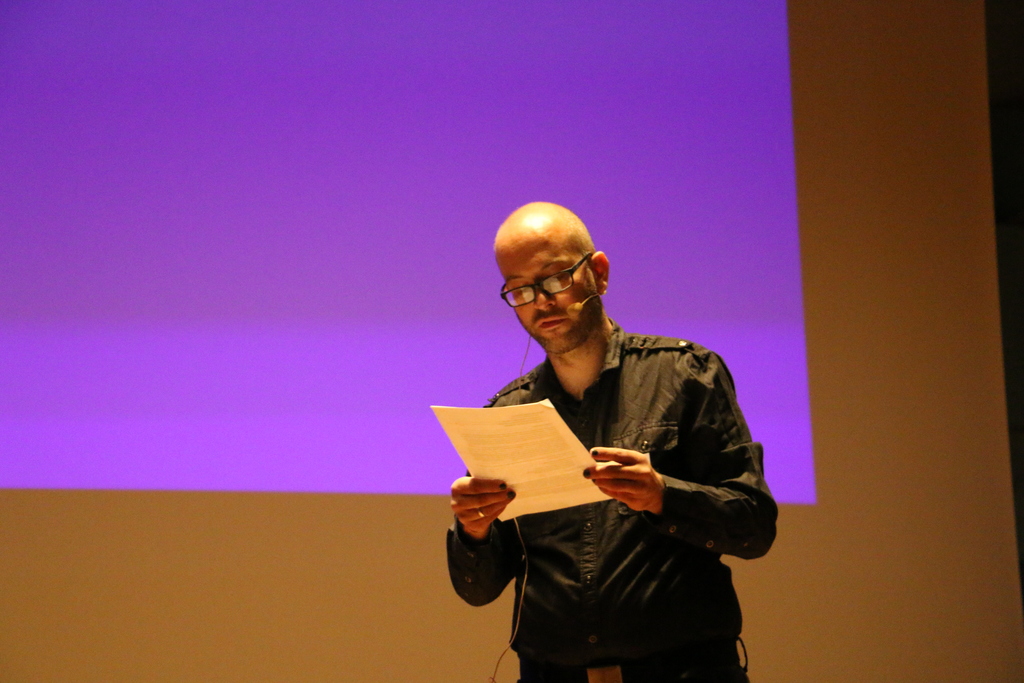ALMAT - Algorithms that Matter
Navigation
ALMAT - Algorithms that Matter
Artistic Research Project
David Pirrò, Hanns Holger Rutz
Algorithms that Matter (Almat) is an artistic research project by Hanns Holger Rutz and David Pirrò. It aims at understanding the increasing influence of algorithms, translating them into aesthetic positions in sound. It builds a new perspective on algorithm agency by subjecting the realm of algorithms to experimentation and diffractive reading.
Almat is a three-year project running from 2017 to 2020, within the framework of the Austrian Science Fund (FWF) – PEEK AR 403-GBL – and funded by the Austrian National Foundation for Research, Technology and Development (FTE) and by the State of Styria. It is hosted by the Institute of Electronic Music and Acoustics (IEM) at the University of Music and Performing Arts Graz.
Simulation and Computer Experimentation in Music and Sound Art
Seminar
David Pirrò and Hanns Holger Rutz
March 21, 2019 until March 22, 2019
Orpheus Institute, Ghent
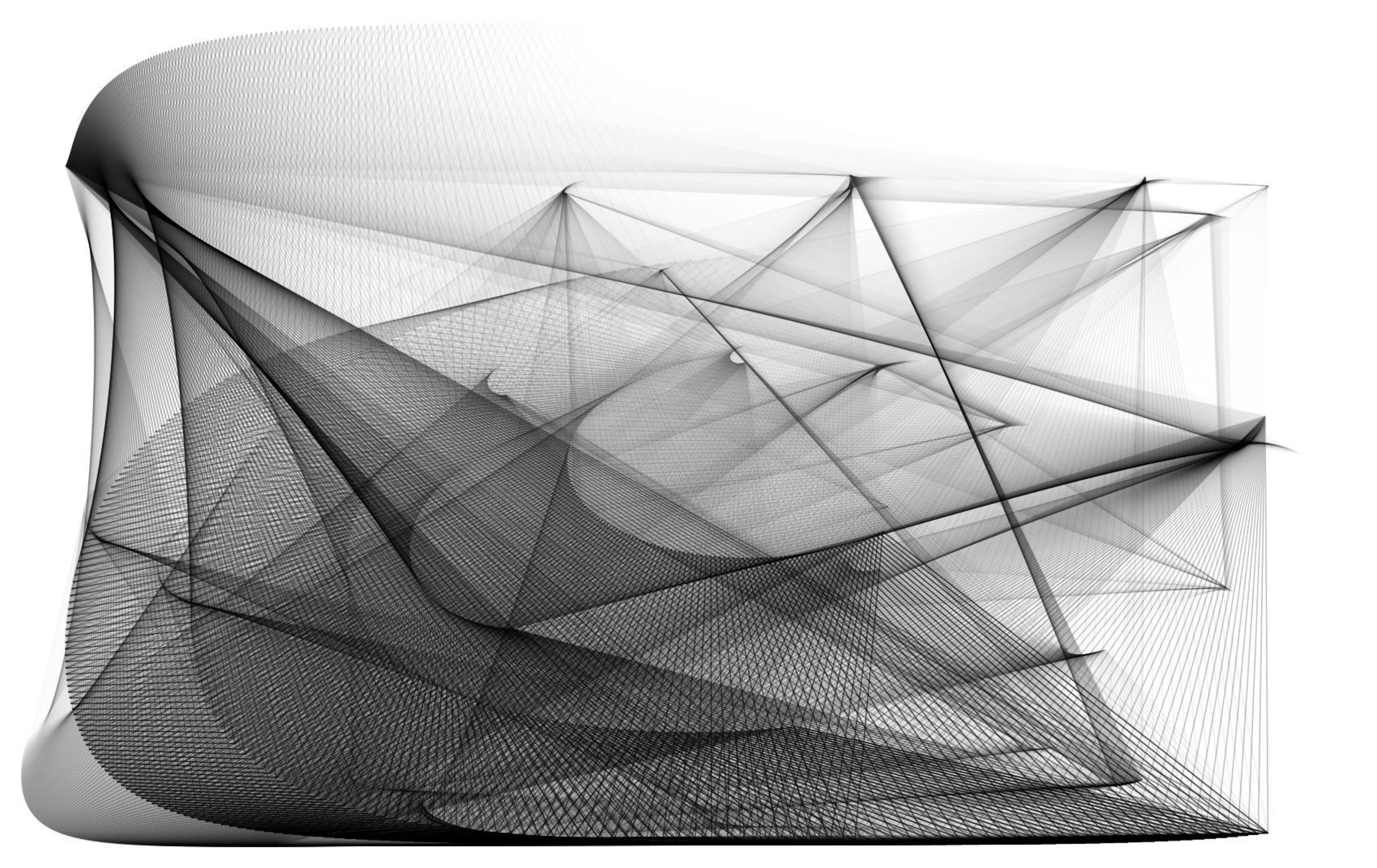
Computational methods have made their way into most of scientific and artistic fields; simulation has become a paradigmatic mode in contemporary practices. In science, in design, in medicine and in art, simulations of natural, human, technological or abstract systems (or techniques derived from simulation) are ubiquitous. The development of new methods of computation and simulation in the natural sciences initiated an ongoing discussion about the relationship of in silico experiments to empirical or theoretical modes of investigation.
The seminar aims to bring together practitioners and scholars to discuss the wide-reaching implications of the ‘agential cut’ (Barad) or ‘ontic cut’ (Rheinberger) – the separation between operationalised model or abstract theory and perceived or experimentally verified ‘reality’, the fissure already indicated by Husserl and realised in experimental computational systems. These introduce a new type of interface between the machinery and what is implemented, allowing for the ongoing production of new data and going beyond the traditional atemporal theoretical models; crucially, simulations also allow new and mobile perspectives onto the ‘object’ modelled by tracing contingent, situated, multiple paths through what DeLanda describes as ‘a space of possibilities’ – alternative realities within a space that displays stability or consistency at another level. In Rheinberger’s words ‘it becomes urgent to ask whether computer simulations represent a new category of epistemic object altogether.’
Threading Time Masterclass
Masterclass
David Pirrò
Conservatory of Piacenza, Italy, 6-8 November 2019
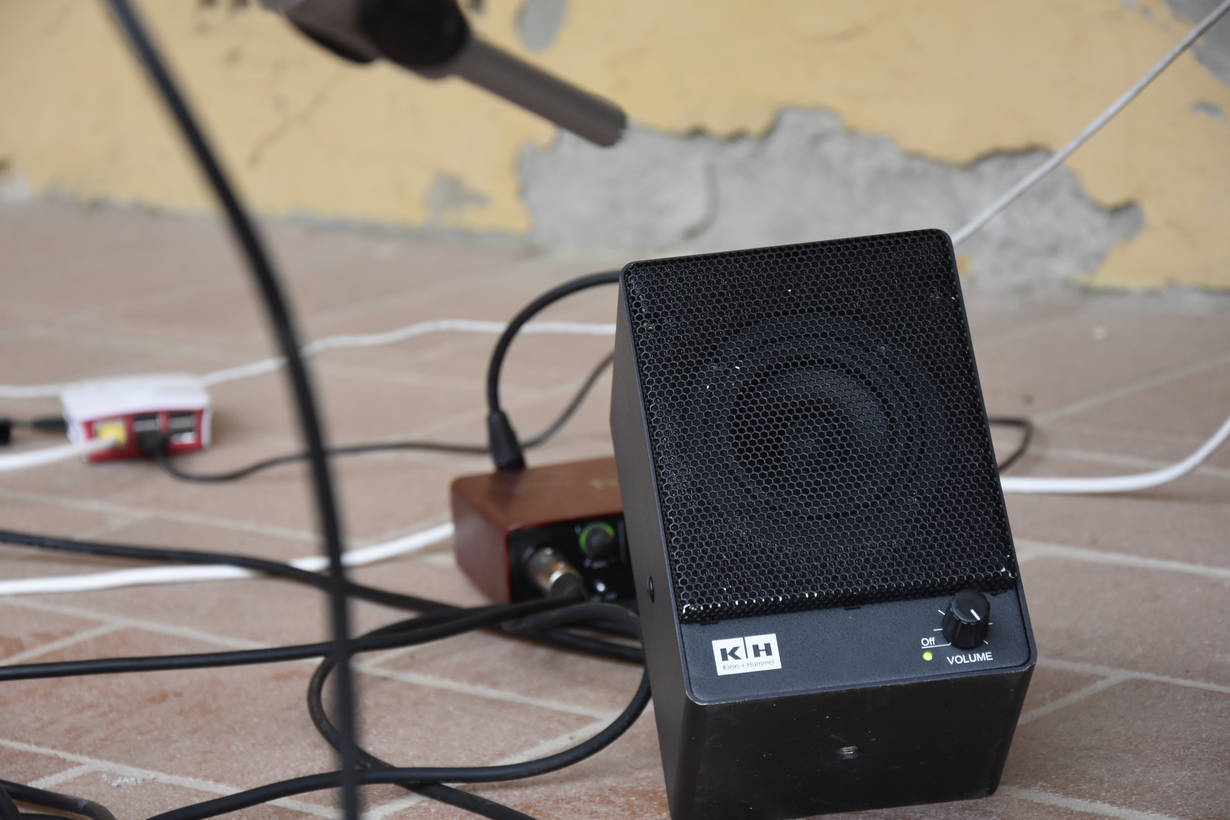
Nowadays algorithms are often relegated to a pure instrumental role: an algorithm is a tool that solves a problem, a function that provides an answer, at the same time hiding its inner mechanics to the external user. Nevertheless, a different perspective that originates from experimental computational sciences views algorithmic processes as performative entities in perpetual and mutual interaction with their context, a world that is co-generated. From this standpoint, as it is the case, for example, in computastional physics, algorithms are processes that resonate with speculative thinking and with an enactive approach to cognition. These systems embody an idea of algorithmicity that is profoundly related both to a consturctivistic vision of cognition and to an ecologic idea to reality.
During the course of the masterclass, algorithms were introduced from a mathematical perspective, departing from practical examples derived from the study of dynamical systmes in physics and mathematics. Some elementary algorithms, based on self regulatory processes (like auto gain control), constituted the basis to develop a shared and distributed sound installation composed of small autonomous sound agents (based on raspberry pi boards), all interacting with each other through the medium of sound (each agent was equipped with a microphone and a loudspeaker).
Signale Lecture - ALMAT Concluding presentation
Lecture
David Pirrò, Daniele Pozzi, Hanns Holger Rutz
Concluding presentation of the Almat project.
ALMAT - at Impuls Academy 2019
Workshop
David Pirrò, Hanns Holger Rutz, and Robin Minard
Partipants:
Dong Zhou Alicia Champlin David Pirrò Nicholas Moroz Jaume Darbra Florian Schwamborn Andreas Trenkwalder Luca Morino Tim Pauli Daniele Pozzi
The 2019 edition of the workshop focuses on the development of a site-specific sound installation at the Museum of Perception. The installation will explore the interactions of algorithmic and physical spaces and their dynamic and mutable properties. Participants will work on the premise that spaces and our perception of them change depending on presence, absence, the movement of visitors, the time of the day, the rhythm of the surroundings as well as the sonic and algorithmic interventions we bring into them.
The participants are invited to develop their various approaches within an atmosphere of collaboration, where special emphasis will be given to the translation of environmental data (such as sensor input from the surroundings and visitors) through computer music systems developed and assembled by the participants and tutors. One question we want to pursue is how behaviours can be composed that transition from “technical and artificial” to “organic and alive”, particularly through the articulation of spatiality.
ALMAT - at Impuls Academy 2017
Workshop
David Pirrò, Hanns Holger Rutz, and Agostino Di Scipio
February 11th-19th, 2017, IEM Graz
ALMAT . Algorithms That Matter
Algorithms That Matter (ALMAT) focuses on the experimentation with algorithms and their embedding in live performances. Rather than conceiving algorithms as established building blocks (“live electronics”) or the formalisation of a compositional idea (“algorithmic composition”), we look at them as performing entities whose consequences are irreducible to models. Algorithms “matter” in the sense that matter and meaning cannot be distinguished, they may be moulded and they may unfold material in an ecosystemic way: Materials become a new source for transformation.
This workshop seeks to attract computer music practitioners, sound artists and composers by offering a platform for exchange and reflection about their personal approaches towards algorithmic experimentation. The participants are enabled to further develop their approaches, where special emphasis is given to the reciprocal coupling of their respective systems. The workshop starts with an internal presentation of the participants for the other participants and tutors, followed by an in-depth analysis and discussion of the different approaches. The rest of the workshop takes a semi-structured form, open to adaptation to the interests of the participants. Focus will be on the mutual engagement and the production of connecting points between systems, using both data and sound links. At the end, concert slots within the impuls festival are allocated for the participants to present either existing works or new works developed during the workshop.
The workshop will be held at the CUBE performance space of the Institute for Electronic Music and Acoustics (IEM). The CUBE is equipped with a 24-channels periphonic loudspeaker setup for advanced sound spatialisation and an 18-cameras infra-red motion capture system allowing bodily motion to be used as input for sound synthesis and processing.
The workshop Almat was developed by David Pirrò and Hanns Holger Rutz (both IEM Graz) and will be realised together with Agostino Di Scipio.

Selected participants for this program:
- Alyssa Aska
- Laura Endres
- A. Fernández Rodríguez
- Davide Gagliardi
- Brian Garbet
- Phivos-Angelos Kollias
- Frédéric Le Bel
- Matteo Polato
Algorithmic Spaces
Workshop
David Pirrò, and Hanns Holger Rutz
ZKM Karlsruhe, 2018
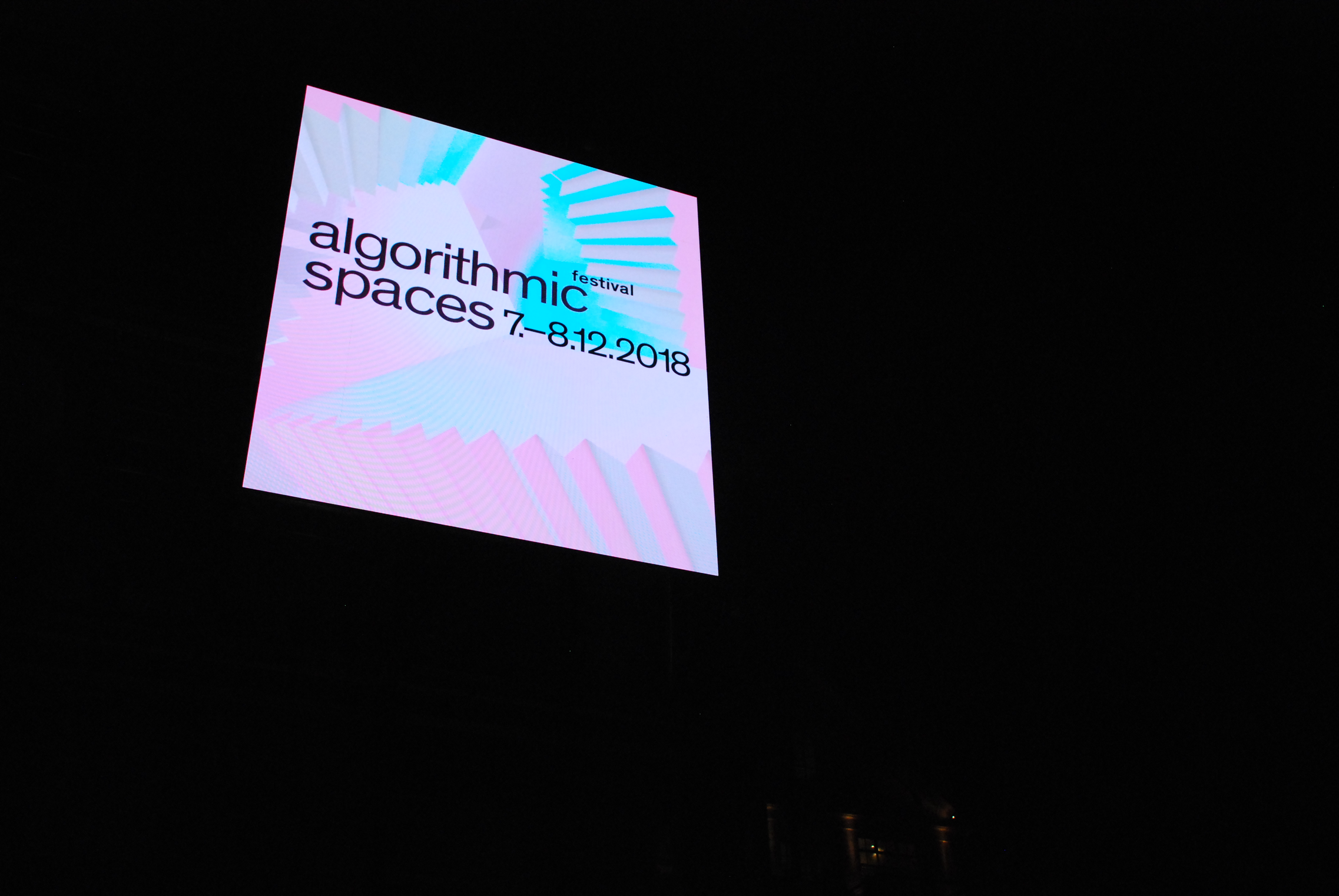
Are there inherent spatial properties to algorithms? For example, what is the relationship between the iterations of code, the behaviour of multi-agent systems, the exploration of databases, and their inscription into the perceptual, auditive space? We were interested in pieces that use generative processes to produce space, rather then applying a secondary “spatialisation” procedure. We were looking for approaches that treat spatiality as a critical phenomenon emerging from the work with algorithms, for sonic artefacts that probe concepts of spatiality through embedding in algorithmic processes.
Thresholds of the Algorithmic
Workshop
Hanns Holger Rutz, and David Pirrò
Bergen Center for Eletronic Arts (BEK), Lydgalleriet, Bergen, NO, 2018.
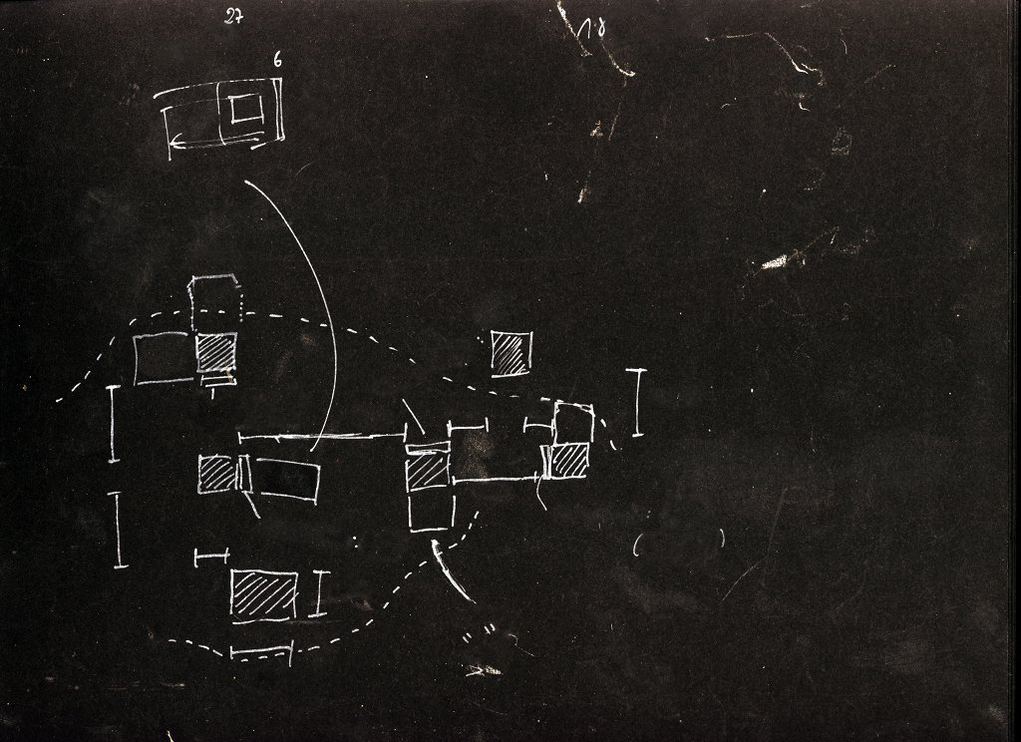
Thresholds are locations of transitions, points where one modality becomes another, where a qualitative change occurs. In physics the point where an aggregate state changes—the phase transition—is a distinguished transitional location where the properties of the adjacent states become evident. Similarly, in this workshop-in-exposition we want to study the properties of the algorithmic by putting ourselves in threshold positions and actively shape them. More than merely separating two sides, one can spend time on a threshold, move along a ridge, performing a tightrope walk while trying not to fall to either side.
This is the exposition for an event taking place in Lydgalleriet Bergen, Norway, June 2018. Thresholds of the Algorithmic is a collaboration between ALMAT and Bergen Center for Electronic Art (BEK), and part of BEK and Notam’s ongoing series of workshops for advanced users. It is a hybrid format that places the workshop inside an exhibition context, where the exposed works and artefacts form the basis of the workshop’s activity. Instead of “closed works”, what is exposed to the general public are objects, sounds or installations that are open to engagement and reconfiguration during the workshop.
From Data to Process
Presentation
From Data to Process: Algorithms that Matter, Hanns Holger Rutz, David Pirrò and Agostino Di Scipio, Perspectives and project launch
Abstract:
Algorithms that Matter (Almat) is a three-year FWF-funded artistic research project (AR 403) run by Hanns Holger Rutz and David Pirrò at the IEM Graz. It asks how algorithmic processes emerge and structure the praxis of experimental computer music. What we are interested in is to rethink algorithms as agents co-determining the boundary between an artistic machine or “apparatus” and the object produced through this machine. Unravelling the seemingly stable notion of algorithm, we look at the way an experimental culture in which the work with algorithms is embedded shapes our understanding of it, retroacts and changes the very praxis of composition and performance. Using as dispositifs two distinct software systems we have created, SoundProcesses and rattle, we implement a series of connected experiments, addressing research questions such as: What are the “units” of algorithms, in what way can they be de- and recomposed, what is the nature of their affordances and material traces, how can they be preserved and inform the methodology of artistic research? Special focus is put on the reconfiguration of elements, such as relaying a system to another artist/composer, and we work with a number of invited guest artists to explore the different algorithmic perspectives.
In From Data to Process, Rutz, Pirrò, and collaboration partner Agostino Di Scipio introduce the project and strategies to pursue, when data remains incomputable and algorithms become forms of process.
